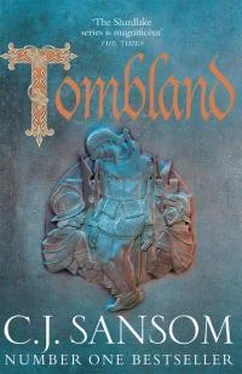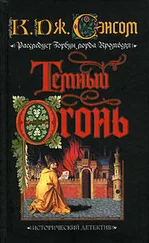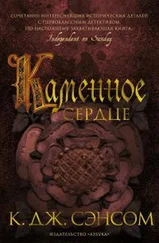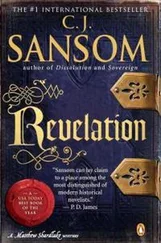Second, very popular among radical Protestants in the 1540s was the ‘biblical’ prophecy – people selecting texts from the Bible and claiming God had revealed their true meaning to them. This was not limited to the unlearned. John Knox regarded himself as one selected by God to be a prophet. 3In the atmosphere of the camp, any number of amateur Bible-readers might have believed themselves chosen to be prophets.
Third was the great bogey of the 1540s ruling classes: the Anabaptists, a radical German Protestant group who believed all good should be held in common. 4Although the Anabaptists later renounced violence and by the mid-1540s their numbers in England were few, if any, their egalitarianism had made them greatly feared. However, as the leading historian of the Anabaptists in England notes, there is no indication of Anabaptists at Mousehold. 5Two Anabaptists were burned for heresy under Edward VI, but for arcane theological, not social beliefs. It seems likely that by 1549 they had petered out as a socially radical movement, despite elite fears.
Finally there were the socially radical Commonwealth men. It has been noted above that they envisaged complaints being remedied by the King, not the people themselves. However their opposition to the ‘greedy rich men’ must have influenced the ‘camps of Commonwealth’ which at first expected the Protector to remedy their grievances, and when it became clear this was not going to happen some may have developed their complaints to justify rebellion.
These four strands of opinion probably mixed and melded in the camp. Sotherton has only identified the first; this emphasis may reflect his desire to portray the rebels as simpletons, but the ‘fantastical’ prophets were obviously very important. There were precedents from 1536 of them forecasting the fall of the realm. Two were among the nine leading rebels executed for treason at the Oak of Reformation immediately after the final battle. 6
12–21 JULY : DAYS OF HOPE
While Leonard Sotherton was in London, messengers from Kett were also at the Protector’s court. On 17 July Somerset said the delegation had arrived and he was hopeful that ‘some of the light sort remaining tickle’ about Norwich would soon be appeased. 1
At the same time, the Mousehold rebels were preparing a petition to the King known as the ‘29 Demands’; although it is worded as a petition, each section was headed ‘We pray ...’ 2Petitions, to some of which Somerset replied, were also sent by the Thetford and Suffolk camps, though the original petitions have been lost. 3The Mousehold petition seems to have been composed in a hurry, the items not being set out in any organized fashion.
The document has been interpreted in two ways. First, as representing a ‘conservative rebellion’ seeking a return to an idealized past of mutual obligation between landlord and tenant, without acquisitive enclosers. 4Alternatively, it has been seen as demanding a permanent voice for the commons in running their communities. 5Arguably the document is both, but with the innovative extremely radical and novel, some Articles calling for a say in local government for commoners. 6
The document does not mention urban grievances, despite the rebels’ links to the Norwich poor, with whom they had worked to remove the enclosures round the Town Close. This is not as surprising as it might seem. The alliance of convenience with the Norwich rulers would discourage including urban complaints, while, most important, the petition was framed to appeal to the Protector, to whom loyalty was still claimed, and the grievances that he had promised to redress were rural. A second petition may have been planned, although it is unclear whether even the first reached Somerset.
The grievances are best discussed by subject area. Regarding enclosure, Article 29 wished to simply prohibit gentleman from farming livestock for profit. This is very radical indeed.
Articles 3 and 11 sought to end abuse by the manorial lord of his rights over common land, Article 3 stating flatly that ‘no lord of no man shall, common upon the commons’, although the rights of tenants and freeholders are protected. This was more than a return to the past. Other articles restricted the keeping of rabbits and doves.
The petition objected to manorial laws imposing feudal dues including wardship on their tenants, which connects with articles upbraiding local royal officers, particularly the feodary and escheator, for abusing their duties. The solution here was radical and innovative indeed, asking for commissioners – chosen by the Commons and approved by the King – to ‘redress and reform’ laws and statutes concealed from the commons by royal officials (and, no doubt, lawyers employed to work with the landlords). This implies commissions, possibly permanent and certainly including commoners. Such commoners were to be paid fourpence a day (a labourer’s wage) while sitting.
Articles 6 and 14 deal with the abuse of manorial rents and rights. Famously, Article 16 prayed that ‘all bond men may be made free for God made all free with his precious blood shedding’. This may have been thought likely to appeal to Somerset, who had freed serfs on his own estates.
Parish priests were heavily criticized for their ignorance, absenteeism, involvement in land purchase, and failure to preach. Such priests should be ‘put from their benefices and the parishioners there to choose another or else the patron or lord of the town’. Here was another request for involvement of the commons in rural institutions.
The petition, then, wished to keep the manorial system intact, and end the ‘seigneurial offensive’ against common land. However in the provisions dealing with the abuses of royal officials and members of the clergy, it looked to a substantial step forwards in popular representation and participation in rural institutions.
An interesting trio of articles has examined Somerset’s dealings with the rebels through surviving letters to them. 7Ethan Shagan has argued that letters between Somerset and the rebels showed a dialogue in which Somerset made some substantial concessions. M. W. Bush and G. W. Bernard, however, more plausibly argue that Somerset was being disingenuous, and while he probably had some sympathy with some rebel demands – as we have seen, he had accepted the ‘agrarian’ explanation for inflation and believed in reform – he was as ferociously opposed to commoner assertiveness as Henry VIII would have been. He made it plain in his letters, at length and in fierce language, that commoners had no right to set up camps and make demands – that it was a defiance of the true order of society – but that if they dispersed they would receive pardons, while their grievances would be dealt with by the commissioners or Parliament. In some ways this recalled Henry VIII’s initial conciliatory response to the Pilgrimage of Grace, but as with Henry the threat of force always lay behind the promises, and sometime around mid-July the policy of appeasement changed to one of destroying the camps by military force unless they agreed to disperse.
I do not think Somerset ever intended that commoners should have a say in running things. Though he made occasional concessions to the camp-men – such as agreeing to reform of the fee-farm of tolls on his own land at Thetford – these were very minor. There has been argument over whether another letter to the Thetford rebels actually acceded to the commons’ desire for a role in appointing commissioners, but the letter is so garbled that it is impossible to gather its meaning. 8Somerset, by then, must have been under tremendous strain. Shagan’s argument – that the camps and Somerset were engaged in a dialogue, a mutual feedback system – flies in the face of the facts. What was happening was the reverse of a dialogue; it was a deception, an attempt by Somerset to buy time, and around 17 July (interestingly, the date the commissioners arrived in Kent but failed to get the Canterbury camp to disperse) he turned from appeasement to confrontation. False hopes had been created – in these circumstances it was not unreasonable for Robert Kett to hope for a sympathetic response, so that when the royal Herald arrived at Mousehold Heath on 21 July, the confrontational nature of his message can only have caused shock and anger, as I have portrayed in Tombland .
Читать дальше






![К Сэнсом - Стенание [другой перевод]](/books/432043/k-sensom-stenanie-drugoj-perevod-thumb.webp)



